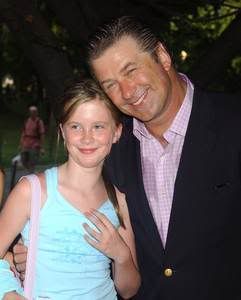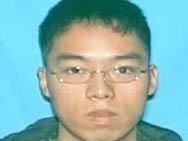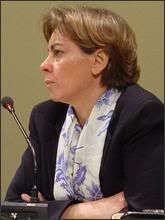Actor Alec Baldwin: Father Of The Year
" Hey, I want to tell you something, OK? And I want to leave a message for you right now. 'Cause again, it's 10:30 here in New York on a Wednesday, and once again I've made an ass of myself trying to get to a phone to call you at a specific time. At 11 o'clock in the morning in New York and if you don't pick up the phone at 10 o'clock at night. You have humiliated me for the last time with this phone. And this crap you pull on me with this G**damn phone situation that you would never dream of doing to your mother and you do it to me constantly and over and over again. I am going to get on a plane and I am going to come out there for the day and I am going to straighten your ass out when I see you.
Read here article by Robert Paul Reyes Ireland and dad, Alec Baldwin, in 2005, clearly happier times.
Ireland and dad, Alec Baldwin, in 2005, clearly happier times.
This is the full text of the voice mail that Alec Baldwin left for his 11-year-old daughter.
When the time comes for me to make the phone call, I stop whatever I'm doing and I go and I make that phone call.
And you don't even have the G**damn phone turned on.
I want you to know something, OK? I'm tired of playing this game with you.
I'm leaving this message with you to tell you you have insulted me for the last time. You have insulted me.
You don't have the brains or the decency as a human being.
I don't give a damn that you're 12 years old, or 11 years old, or that you're a child, or that your mother is a thoughtless pain in the ass who doesn't care about what you do as far as I'm concerned.
And when I come out there next week, I'm going to fly out there for the day just to straighten you out on this issue.
I'm going to let you know just how disappointed in you I am and how angry I am with you that you've done this to me again.
You've made me feel like s**t and you've made me feel like a fool over and over and over again.
Do you understand me?
I'm going to really make sure you get it. Then I'm going to get on a plane and I'm going to turn around and come home.
So you'd better be ready Friday the 20th to meet with me.
So I'm going to let you know just how I feel about what a rude little pig you really are.
You are a rude, thoughtless little pig, OK?"
If Alec had left this vitriolic message on the voice mail of his worst enemy, I still would have been surprised at the depth of his anger. But to leave such hateful words on the voice mail of his young daughter is simply unforgivable.
Baldwin is a typical Hollywood egotist; the world revolves around him. He cares only about his feelings: You have insulted ME , You have humiliated ME, You've done this to ME again.
Nevermind the psychological damage he is inflicting on his daughter by calling her a "pig".
What was the crime that caused Alec to go bonkers?
Did his daughter OD on heroin or run away from home? No, she had the temerity not to pick up her phone when her father called.
I don't blame little Ireland for not wanting to talk to her psycho dad; I'm surprised she hasn't blocked his phone number.
Surprisingly some jokers have jumped to the defense of the indefensible, but it's not who you think. Alec is a noted Hollywood liberal, but it's not liberals who have defended Alec's meltdown.
It's a few Men's Rights Advocates (MRA) who have defended Alec's tirade against his own daughter. MRA have a few legitimate issues: Men do get the shaft when it comes to divorce and child custody cases.
But the "Men's Movement" goes far beyond these core issues; they see a vast feminist conspiracy to keep men subjugated. Most men's rights activists believe in a patriarchal society where testosterone is the coin of the realm.
Those in the "Men's Movement" do great harm to their cause when they defend an out-of-control freak like Baldwin.
And they shouldn't try to shift the focus away from Baldwin, by castigating the mother, Kim Basinger, for releasing the incriminating voice mail. It hasn't been prove that Basinger released the voice mail to the media, and two wrongs don't make a right.
Alec Baldwin has a long history of losing his temper; he is a prime candidate for intervention. Baldwin's inexcusable tirade against his daughter has proven that he doesn't deserve custody.
He should forget about visitation rights and adopt a pet rat.




